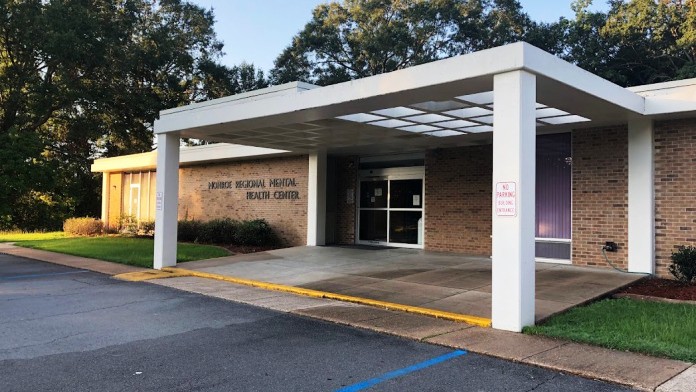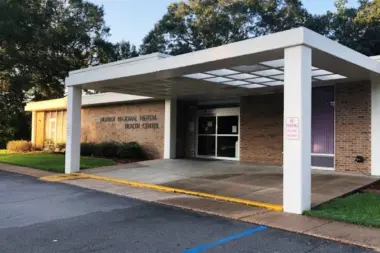I think that people do not care enough about mental health and believe that those who have problems just invented them or decided to have them. Bad very bad
About Northeast Delta Human Services Authority
Northeast Delta Human Services Authority’s Monroe Behavioral Clinic offers several services for Monroe Louisiana residents. Monroe is a historic city known for its role in aviation history. It’s also home to the first Coca-Cola Bottling plant and the Black Bayou Lake National Wildlife Refuge.
Services Across the Lifespan
The behavioral clinic offers services for children, adolescents, and adults with addictive disorders, developmental disabilities, and seeking tobacco cessation. The addictive disorders services are based on an evaluation that forms the foundation of your personalized plan. Their counselors use a series of physical and behavioral diagnostic criteria to determine if you have an addiction.
They may ask about your physical tolerance to a substance, your ability to meet applications and responsibilities, your relationships, and legal problems you may have encountered because of using a substance. The evaluation determines the level of care needed to appropriately treat your condition and the curriculum that will provide you with the best support.
Individuals and families are assisted by behavioral health professionals that include a multidisciplinary team of physicians, social workers, family therapists, addiction counselors, and case managers. Your program is provided as an outpatient and may include an intensive outpatient program or traditional outpatient substance abuse treatment. When needed, you may be referred to a mental health counseling service or psychiatric service within the clinic.
Holistic Approach to Addiction Treatment
Medication management and medication assisted treatment can also be provided. Your program may include substance abuse education or court mandated classes when needed. They partner with a gambling addiction service provider to ensure you receive a holistic approach to addiction services and address all addictions you may experience.
Your program can also include prevention services to address potential associated conditions that have not yet occurred. Alongside these services you may receive peer support services for adolescents, adults, and women’s gender specific programs. Their evidence-based treatment approach recognizes that there are many aspects that depend on you, such as variations in the way your body works.
They use cognitive behavioral therapy rational living therapy, motivational interviewing, and living in balance, a research-based curriculum that helps you address issues in lifestyle choices that may have been neglected during addiction. They accept most private insurance plans including Medicaid, Medicare, Benefit Management, and CHAMPVA insurance is not required to receive services and they will help patients who meet eligibility requirements with sliding scale fees that are based on income and the number of dependents.
Latest Reviews
Rehab Score
Gallery


Other Forms of Payment
Self-pay involves paying for treatment out of your own pocket. You can use savings or credit, get a personal loan, or receive help from family and friends to fund your treatment. If you don't have insurance or your insurance plan doesn't cover a specific program, self-pay can help ensure you still get the care you need.
Private insurance refers to any kind of healthcare coverage that isn't from the state or federal government. This includes individual and family plans offered by an employer or purchased from the Insurance Marketplace. Every plan will have different requirements and out of pocket costs so be sure to get the full details before you start treatment.
Medicaid is a state based program that helps lower-income individuals and families pay for healthcare. Medicaid covers addiction treatment so those enrolled can use their coverage to pay for rehab. When a program accepts Medicaid the client often pays very little or nothing out of their own pocket.
Medicare is a federal program that provides health insurance for those 65 and older. It also serves people under 65 with chronic and disabling health challenges. To use Medicare for addiction treatment you need to find a program that accepts Medicare and is in network with your plan. Out of pocket costs and preauthorization requirements vary, so always check with your provider.
Sliding scale payments are based on a client's income and family size. The goal is to make treatment affordable to everyone. By taking these factors into account, addiction recovery care providers help ensure that your treatment does not become a financial burden to you or your family, eliminating one barrier to care.
Addiction Treatments
Levels of Care
Intensive Outpatient programs are for those who want or need a very structured treatment program but who also wish to live at home and continue with certain responsibilities (such as work or school). IOP substance abuse treatment programs vary in duration and intensity, and certain outpatient rehab centers will offer individualized treatment programs. The Intensive Outpatient Program provides addictive disorder treatment for nine hours per week in a group setting for six weeks.
Outpatient Programs (OP) are for those seeking mental rehab or drug rehab, but who also stay at home every night. The main difference between outpatient treatment (OP) and intensive outpatient treatment (IOP) lies in the amount of hours the patient spends at the facility. Most of the time an outpatient program is designed for someone who has completed an inpatient stay and is looking to continue their growth in recovery. Outpatient is not meant to be the starting point, it is commonly referred to as aftercare.
Completing a drug or alcohol rehab program shouldn’t spell the end of substance abuse treatment. Aftercare involves making a sustainable plan for recovery, including ongoing support. This can include sober living arrangements like halfway houses, career counseling, and setting a patient up with community programs like Alcoholics Anonymous (AA) or Narcotics Anonymous (NA). The Aftercare Program provides one hour counseling per week for an indefinite period of time.
Treatments
The goal of treatment for alcoholism is abstinence. Those with poor social support, poor motivation, or psychiatric disorders tend to relapse within a few years of treatment. For these people, success is measured by longer periods of abstinence, reduced use of alcohol, better health, and improved social functioning. Recovery and Maintenance are usually based on 12 step programs and AA meetings.
While each drug rehab in Louisiana offers unique elements, recovery support often follows a similar pattern. Detox is followed by inpatient and/or outpatient care, then aftercare support is provided once the participant completes the initial program.
A combined mental health and substance abuse rehab has the staff and resources available to handle individuals with both mental health and substance abuse issues. It can be challenging to determine where a specific symptom stems from (a mental health issue or an issue related to substance abuse), so mental health and substance abuse professionals are helpful in detangling symptoms and keeping treatment on track.
Programs
Adult rehab programs include therapies tailored to each client's specific needs, goals, and recovery progress. They are tailored to the specific challenges adult clients may face, including family and work pressures and commitments. From inpatient and residential treatment to various levels of outpatient services, there are many options available. Some facilities also help adults work through co-occurring conditions, like anxiety, that can accompany addiction.
Young adulthood can be an exciting, yet difficult, time of transition. Individuals in their late teens to mid-20s face unique stressors related to school, jobs, families, and social circles, which can lead to a rise in substance use. Rehab centers with dedicated young adult programs will include activities and amenities that cater to this age group, with an emphasis on specialized counseling, peer socialization, and ongoing aftercare.
Clinical Services
Cognitive Behavioral Therapy (CBT) is a therapy modality that focuses on the relationship between one's thoughts, feelings, and behaviors. It is used to establish and allow for healthy responses to thoughts and feelings (instead of unhealthy responses, like using drugs or alcohol). CBT has been proven effective for recovering addicts of all kinds, and is used to strengthen a patient's own self-awareness and ability to self-regulate. CBT allows individuals to monitor their own emotional state, become more adept at communicating with others, and manage stress without needing to engage in substance abuse.
Group therapy is any therapeutic work that happens in a group (not one-on-one). There are a number of different group therapy modalities, including support groups, experiential therapy, psycho-education, and more. Group therapy involves treatment as well as processing interaction between group members.
In individual therapy, a patient meets one-on-one with a trained psychologist or counselor. Therapy is a pivotal part of effective substance abuse treatment, as it often covers root causes of addiction, including challenges faced by the patient in their social, family, and work/school life.
Motivational Interviewing (MI) is a clinical approach to helping people with substance abuse issues and other conditions shift behavior in positive ways. It is more goal-oriented than traditional psychotherapy, as MI counselors directly attempt to get clients to consider making behavioral change (rather than wait for them to come to conclusions themselves). Its primary purpose is to resolve ambivalence and help clients become able to make healthy choices freely.
Nicotine Replacement Therapy (NRT) is a way of getting nicotine into the bloodstream without smoking. It uses products that supply low doses of nicotine to help people stop smoking. The goal of therapy is to cut down on cravings for nicotine and ease the symptoms of nicotine withdrawal.
Staff & Accreditations
Staff
Martha Phillips
Director, Clinical Services
Carlton Holmes
Director of Finance
Tina Conley
Director, Human Resources
DeRon Talley
Director, Public Information
Denise Jones
Director, Clinical Services
Avius Zimmerman
Director, Wellness & Prevention Services
Monteic Sizer
Executive Director
Jennifer Purvis
Manager, Medical Certification
Dylan Jung
Public Information Officer
Eric Coulberson
Director, Information Technology
Dependra Bhatta
Primary Director, Behavioral & Health Analytics
Avius Carroll
Director, Prevention & Wellness Services
Yvonne Lewis
Board of Directors & Chairperson
Tina Conley
Director, Human Resources
Accreditations

The Commission on Accreditation of Rehabilitation Facilities (CARF) is a non-profit organization that specifically accredits rehab organizations. Founded in 1966, CARF's, mission is to help service providers like rehab facilities maintain high standards of care.
CARF Accreditation: Yes
Contact Information
4800 South Grand St
Monroe, LA 71202